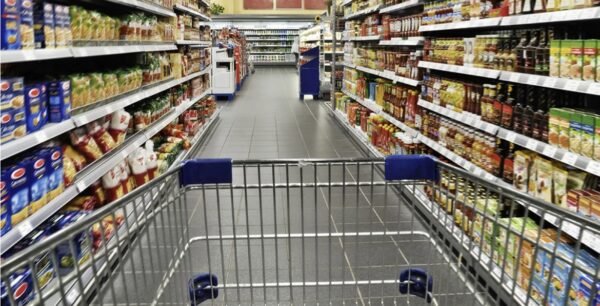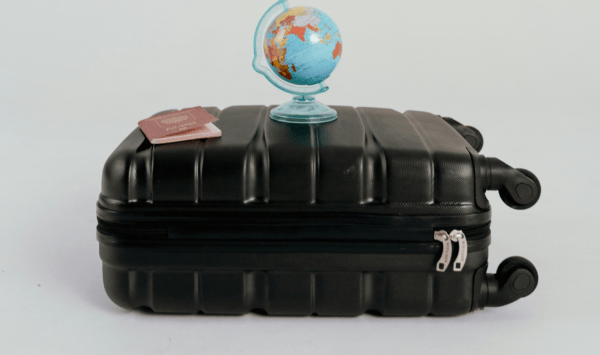
Savvy Savings: Money Expert Reveals How Family Can Save Up to £1,000 a Year on Their Food Bills

With food prices rising by 28.8% in the last two years according to the Bank of England, it has become difficult to avoid the impact of rising food prices, as nearly every item in our weekly groceries seems to be getting more expensive.
It’s fair to say that for most households every penny counts, especially lately when it is expected that there would be a £1,000 increase in grocery bills according to calculations by the Resolution Foundation.
With grocery bills continuing to rise, many households are seeking ways to stretch their budgets further. One of the easiest ways to save is by keeping an eye out for grocery discounts, which can significantly reduce the overall cost of your shopping. Whether you’re looking for coupons, special offers, or price reductions on everyday items, there are plenty of opportunities to save if you know where to look.
In addition to searching for individual discounts, it’s also a good idea to sign up for loyalty programs and newsletters from your favorite stores. These programs often offer exclusive offers or early access to sales, ensuring that you don’t miss out on the best deals. Combining store promotions with discounts found on sites like hotdeals.com can maximize your savings. By staying informed and being strategic, you can keep grocery costs under control and help your household navigate the rising cost of living with a little more ease.
As finding simple ways to save money has become a top priority, Marcus Arcabiasco, a money expert at Bank Locations, has shared 7 simple steps that can help households easily save a huge chunk off their food bills.
1. Meal Prepping
Some people might not fancy the idea of eating some of the same meals every day, but prepping your meals ahead of a week can drastically decrease what you’re spending.
“Create a weekly or monthly meal plan, including breakfast, lunch, dinner and snacks.
This not only gives you an idea of what you’re shopping for but saves unnecessary spending and impulse buys if you’re on a tight budget.
You can also prepare a few different meals to add some variety to your diet and save you from getting flavour fatigue early on,” recommends the expert.
2. Check on Your Storage
It happens to the best of us. You’ve ticked everything off of your shopping list, and start unpacking the shopping, only to find an item somewhere in the cupboards.
“Knowing what you need and how much of it you’ll need before heading to your local supermarket will save you in the long run.
This also stops food wastage and keeps your cupboards organised with non-expired goods hoarding space,” says the expert.
3. Buy in Large Quantities
Buying food in larger quantities can be a financially savvy approach to reduce expenses, as long as you carefully think through some factors.
“First, when buying in bulk, choose items that you regularly consume and won’t go bad before you use them.
Next, compare the expenses of bulk purchases with those of smaller quantities, factoring in any discounts. If the cost isn’t much lower, there’s no need to buy in bulk.
“Lastly, consider if you have ample space to store large quantities if you choose to buy in bulk,” recommends the expert.
4. Sale Sections
Seasonal and sale items are a thrifty shopper’s best friend and there are loads of tips and tricks available for finding out when reduced items will be at your favourite store.
“Buy fruits and vegetables that are in season, as they tend to be more affordable and most importantly, fresher.
Additionally, taking advantage of sales and discounts on staple items in your supermarket’s reduced sections can lead to substantial savings.
Stocking up on non-perishables when they’re on sale ensures you can have the foods you need without breaking the bank,” suggests the expert.
5. Remove Plastic Wrapping
Oftentimes, the plastic our food is packaged in is to preserve it for transportation. Taking the wrapper or packaging of your items will keep them fresher for much longer.
In this instance, it’s worth investing in a few different sized airtight containers to keep your fruit and veg fresh longer.
6. Coupon Queen
Loyalty programs and coupons offered by supermarkets and retailers are valuable tools for frugal shoppers.
Many stores offer loyalty cards that provide discounts on selected items or to accumulate points for future savings.
Using coupons, whether digital or paper, can result in immediate discounts at the checkout. The expert recommends taking advantage of these programs to maximize your savings.
7. Growing Your Own
If you have a green thumb and a bit of outdoor space, or a small space indoors – growing your own fruits, vegetables and herbs can be a rewarding money saver.
Not only does it provide fresh produce, but it also eliminates the need to purchase these items from the store, preventing waste and saving you on your shopping bills.
Even a small herb garden on a windowsill can add flavour to meals without the added costs.













































